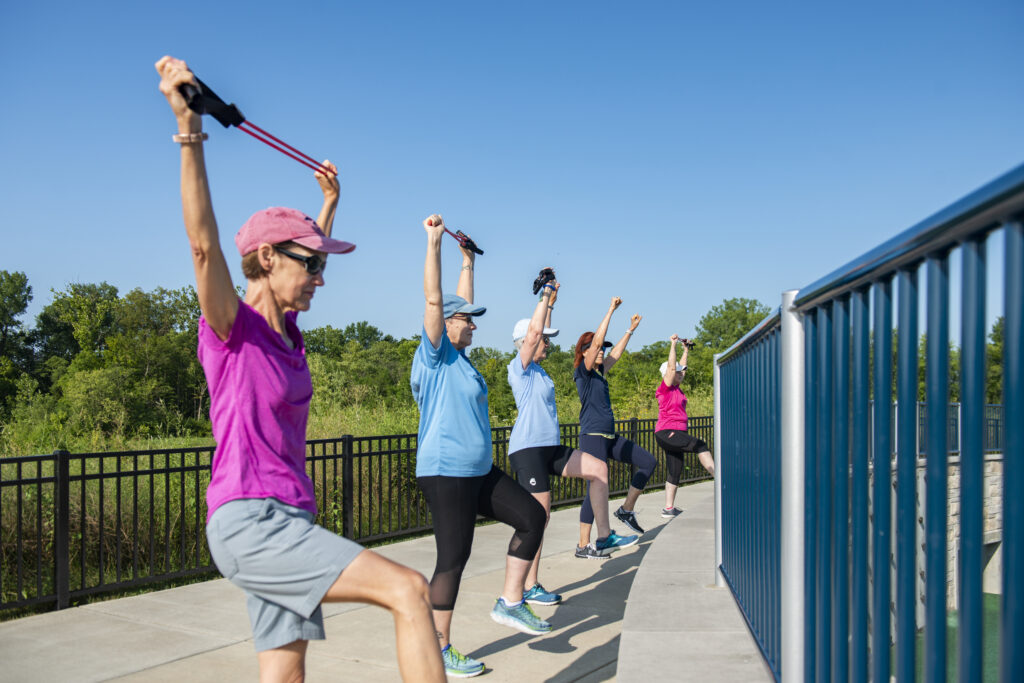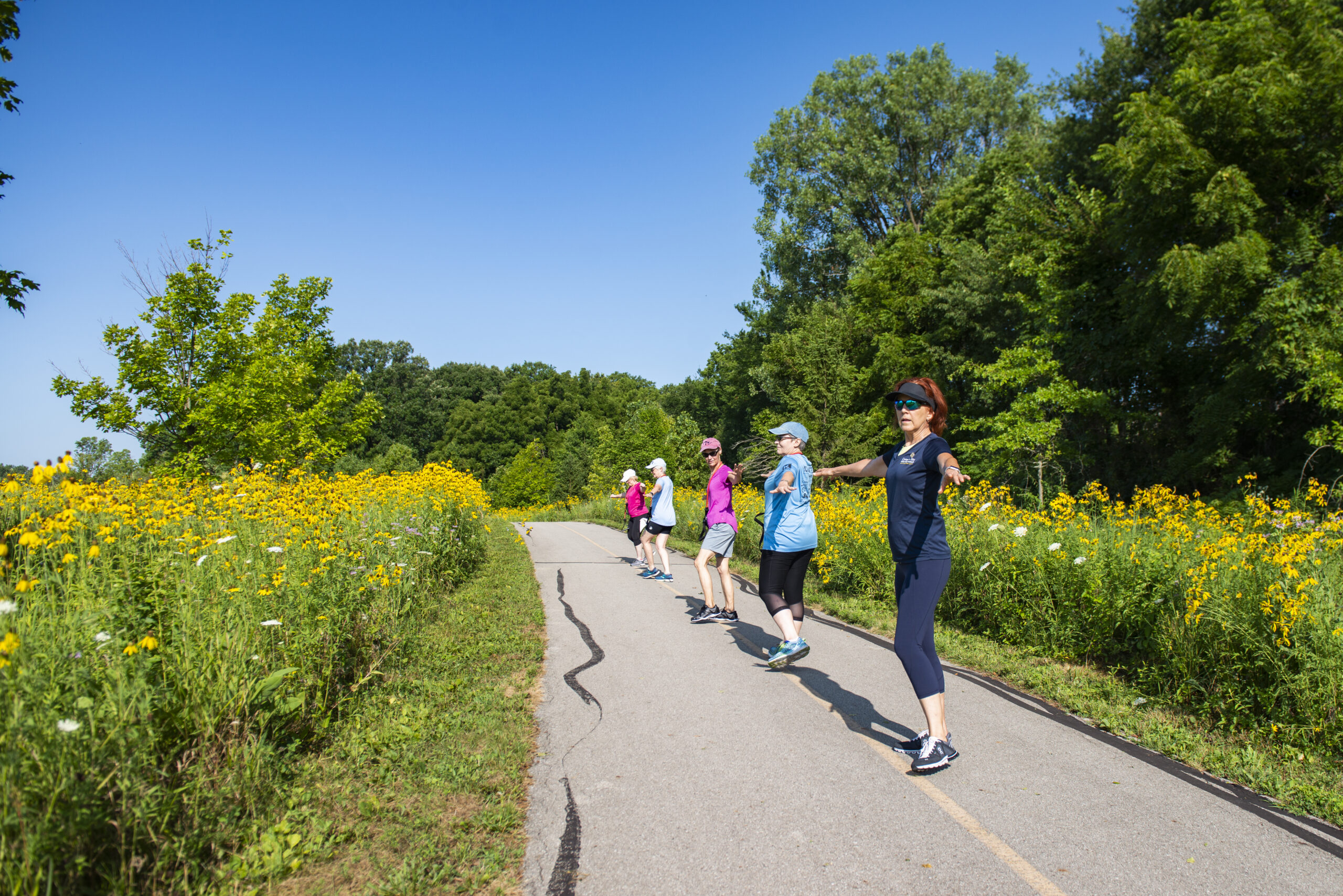
How mindfulness can help you push through self-doubt and discomfort
We all know the positive effects of regular exercise: better mental health (check out “How Exercise Affects Mental Health” to learn more!), longer life span, and more energy to do the things we love. But how do we cope with the not-so positive effects of exercise, like discomfort and doubt? Keep reading to learn how practicing mindfulness while exercising at the Monon Community Center (MCC) can help you stay motivated and feel confident in your abilities.
Table of Contents:
Short-term vs. long-term effects of exercise
Most U.S. adults have signed up for an exercise program or gym membership at some point in their lives, but very few are able to commit to consistent exercise. Studies show that about half of adults are likely to drop out of structured exercise programs within the first six months. 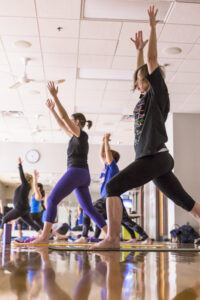
Consistent physical activity, like going for a jog each morning, helps keep our brains and bodies feeling good; this is a long-term positive effect of exercise. But often the short-term negative effects of PA outweigh the long-term positive effects, especially for novice exercisers.
Your morning jog will keep you healthy in the long run, but you may experience aches, pains, and shortness of breath when first starting out. You might doubt your abilities if you don’t see instant results, becoming trapped in a negative thought cycle of failure and inadequacy. So how do we overcome these discomforts and doubts and keep our sights set on reaching our fitness goal? That’s where mindfulness comes in.
What is mindfulness?
In general terms, mindfulness is the basic human ability to be fully present, aware of where we are and what we’re doing, and not overly reactive or overwhelmed by what we’re doing. Mindfulness helps us stop and think before we react, allowing us to view our thoughts, emotions and body sensations objectively. There’s no step-by-step guide on how to be mindful, but this is how it works for most people. 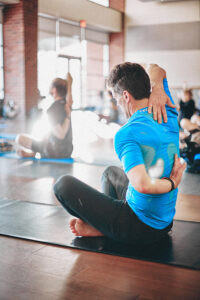
- Be fully present in the moment. Mindfulness is not meant to quiet your mind or achieve inner peace, it is simply paying attention to what is happening in the present moment, and how your mind and body react.
- Acknowledge any thoughts, negative or positive. You are not your thoughts. If you happen to have any judgmental or harmful thoughts while practicing mindfulness, don’t dwell on them. Acknowledge them and let them go.
- Return to the present moment. It’s easy to get distracted. When you feel yourself getting caught up in your thoughts, gently return yourself to the present moment. This will likely happen a lot when you’re trying to be mindful, but the key is to continue re-directing your thoughts.
Non-judgmental awareness of uncomfortable body sensations and self-deprecating thoughts can help novice exercisers regulate the intensity of PA, encouraging feelings of self-control and competence.
Rather than focusing on unproductive thoughts during your workout, like wishing you were done or that your arms would stop aching, remind yourself what you’re working towards.
Mindful Movement
You can practice mindfulness in movement (or “mindful movement”) by being present in your body while you exercise. Mindful movement helps us lower stress, boost confidence, and strengthen our mind-body connection. Here are a few ways you can practice mindfulness while exercising at the MCC:
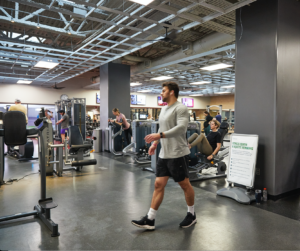
- Unplug: Leave your headphones at home! Whether you’re lifting weights at the fitness center, walking on the track, or stretching in the sauna, take a moment to be fully present in the moment.
- Pay attention to your breathing: Focus on the tempo of your breathing as you warm up before your group fitness class and as you cool down afterwards.
- Strengthen your resolve: Practice acceptance. Remind yourself why you’re here, and how the MCC can help you achieve your fitness goals!
Yes, committing to a fitness routine is not easy and it can take time to see results. But once you accept where you are in your fitness journey, you can feel assurance in the fact that you are doing the best you can do and be motivated to continue exercising in the long run.

